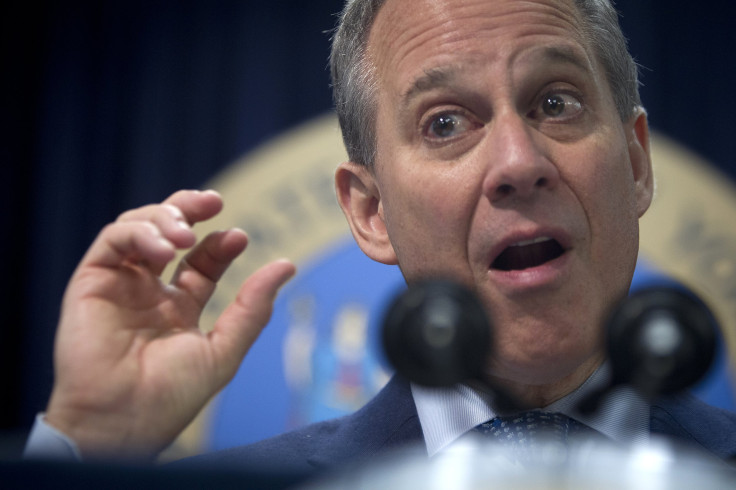New York's Top Financial Cop And Head Prosecutor Vie With Feds To Look Tough On Banks

Top financial regulators and prosecutors in New York are making clear that oversight of big banks must be tougher. New York Attorney General Eric Schneiderman and Financial Services Superintendent Benjamin Lawsky on Wednesday separately announced initiatives to increase supervision of banks and boost their presence on the Securities and Exchange Commission’s beat.
In a speech at Columbia Law School, Lawsky offered proposals that would sharply increase liability in wrongdoing for executives at financial firms. The top financial regulator in the state, Lawsky wants bank officials to personally attest to their firm’s protections against money laundering – putting individual CEOs on the hook if dirty cash flows through.
And in the wake of major cyberattacks, including a breach at JPMorgan that compromised the data of 80 million clients, Lawsky would have banks secure third-party assurances that their networks are secure.
Lawsky isn’t just fretting about customer privacy, though. “We are concerned that within the next decade,” he said, “we will experience an Armageddon-type cyber event that causes a significant disruption in the financial system for a period of time.” His worries echo a growing chorus of Wall Street watchdogs pointing to the systemic risks posed by financial cyberattacks.
Other proposals include surprise audits of banks’ transaction monitoring protocols, which prevent against money laundering, and regular assessments of their cybersecurity systems.
Also on Wednesday, state Attorney General Schneiderman proposed that the state reward whistleblowers and extend them greater protections. Intending to make the New York “the gold standard for states seeking to expose and hold individuals accountable for financial crimes,” Schneiderman asked for a state law that would dole out cash to those who raise red flags over securities fraud.
The move underscores the simmering conflicts between state prosecutors and the SEC, which maintains its own whistleblower reward program. A state whistleblower windfall might create competition between the two agencies.
Indeed, tipsters are already gravitating toward Schneiderman’s office, according to a Bloomberg report last October. Swamped with thousands of requests each year and dogged by a reputation that it’s soft on banks, the SEC has seen whistleblowers increasingly appealing to state prosecutors while abandoning any hope of a payout from the feds. Schneiderman’s proposed whistleblower reward would likely accelerate the trend.
Lawsky’s proposals, too, resonate with his previous criticisms of financial regulators for failing to hold individuals accountable for financial wrongdoing in the subprime mortgage crisis. By having executives personally undersign money laundering protections, Lawsky would make it easier for his office to prosecute individuals. This would represent a step beyond bringing in big cash settlements from banks.
“We have sought increasingly to move toward individual accountability in the resolution of these settlements,” Lawsky said. “It is our hope that it will help spur others to do the same.”
© Copyright IBTimes 2024. All rights reserved.






















